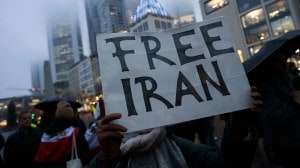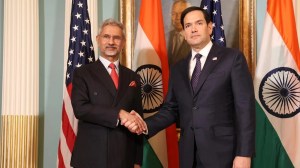Left behind8230; by Kamal Nath
Prakash Karat and his comrades from the Left would probably have preferred not to see the beaming face of Kamal Nath...

Prakash Karat and his comrades from the Left would probably have preferred not to see the beaming face of Kamal Nath, triumphant at the collapse of WTO negotiations, in Geneva, splashed across the pages of most national newspapers last week. Minister Nath, in the past week, has driven a sword through the heart of the Left8217;s ideological opposition to the UPA.
By defying US and indeed other countries, but those don8217;t offend the Left pressure on committing to a skewed WTO deal 8212; the US trade representative Susan Schwab even singled India out for severe criticism 8212;Kamal Nath has asserted India8217;s sovereignty and independence from US foreign policy interests in no uncertain terms. While doing so, he has also managed to position himself and his government as the saviours of poor Indian farmers, a constituency the Left continuously tries to claim as its own. Coming close on the heels of a safe passage for the nuclear deal in Parliament, the breakdown of the WTO talks would further deflate the Left8217;s morale 8212; signing up to something would have given the Left a platform to vent their pent-up anger 8212; while strengthening the position of the UPA.
The Left8217;s claim that the Indo-US civilian nuclear deal was compromising India8217;s sovereignty and foreign policy interests was suspect in the first place. Now, it lies in tatters. India is too large a country and too large a market for any country, particularly the US to bully around. Of course, if the Left had its way, India would still be stuck in its autarkic past, with very little economic power or leverage, especially after the collapse of the Soviet Union. Unfortunately, the Left continues to fail to acknowledge the obvious facts 8212; economic reform has boosted India8217;s economy, which has in turn boosted our bargaining power at international forums like the WTO 8212; something the Left should naturally approve of. Think back to the previous round of WTO negotiations 8212; the Uruguay Round 8212; which were concluded in 1994. Developing countries including India had to acquiesce to a number of questionable agreements, including TRIPS, while getting very little in return from developed countries 8212; reform of agricultural subsidies in rich countries did not even figure on the agenda; even reform in textiles was limited and staggered. At that time, India, which was not so closely or formally allied with the US as it is now, simply did not have enough bargaining power to resist. Now, despite a closer alliance with the US, India can stand up to defend its interests. Economic reforms and economic growth have, therefore, contrary to claims by the Left, been pro-India and not pro-US. The outcome of the Doha mini-ministerial in Geneva makes it more than evident that the Indo-US nuke deal hasn8217;t compromised our interest vis-agrave;-vis US foreign policy or economic policy interests. It is now in the UPA8217;s interest to convey this point strongly to an ambivalent electorate.
Needless to say, the Left parties have found something else to complain about 8212; it is interesting to note the Left8217;s deafening silence on the outcome in Geneva 8212; they now claim that the government is paying a heavy price in kind to their old and new allies in exchange for the support they lent during the passage of the nuke deal through Parliament. There is some truth to this if some recent policy announcements are an indicator. But even in this the Left misses the bigger picture. The fact 8212; and again let8217;s face it 8212; is that the biggest threat to the autonomous functioning of the Indian state comes from actors within the country, not outsiders. It is the push and pull of coalition politics, which extracts the heaviest price, in policy concession terms, from the Indian state. The Left was in many ways party to the same until last month. Again, the solution for this lies in reducing the discretionary powers of the state, while increasing the transparency of decision-making at least on matters of economic policy. Yet, the Left8217;s statist views on managing the economy would create more room for government discretion which would make policy more open to interest group capture 8212; something the Left is now, rather ironically, complaining about. The Left, if they truly care about special-interest capture of government policy and autonomy should push for a more liberal framework of government policy which would greatly reduce the probability of a government having to tweak policy in favour of allies, savoury or unsavoury.
So, here8217;s the rather surprising conclusion: the Left wants India to be a sovereign, independent nation in international forums; the Left wants the state and government policy to be independent of special interest groups. Both are eminently noble goals. Well, liberal economic reform, on the basis of empirical evidence, seems the best way to achieve both. For the moment, the UPA courtesy Kamal Nath has the high ground on the retention of policy sovereignty abroad; the DMK and SP hold the low ground of attempted policy capture; the Left finds itself on no ground, languishing with little credibility, under the surface of real politics8212;a politics it has seemingly failed to understand.
dhiraj.nayyarexpressindia.com
- 01
- 02
- 03
- 04
- 05































